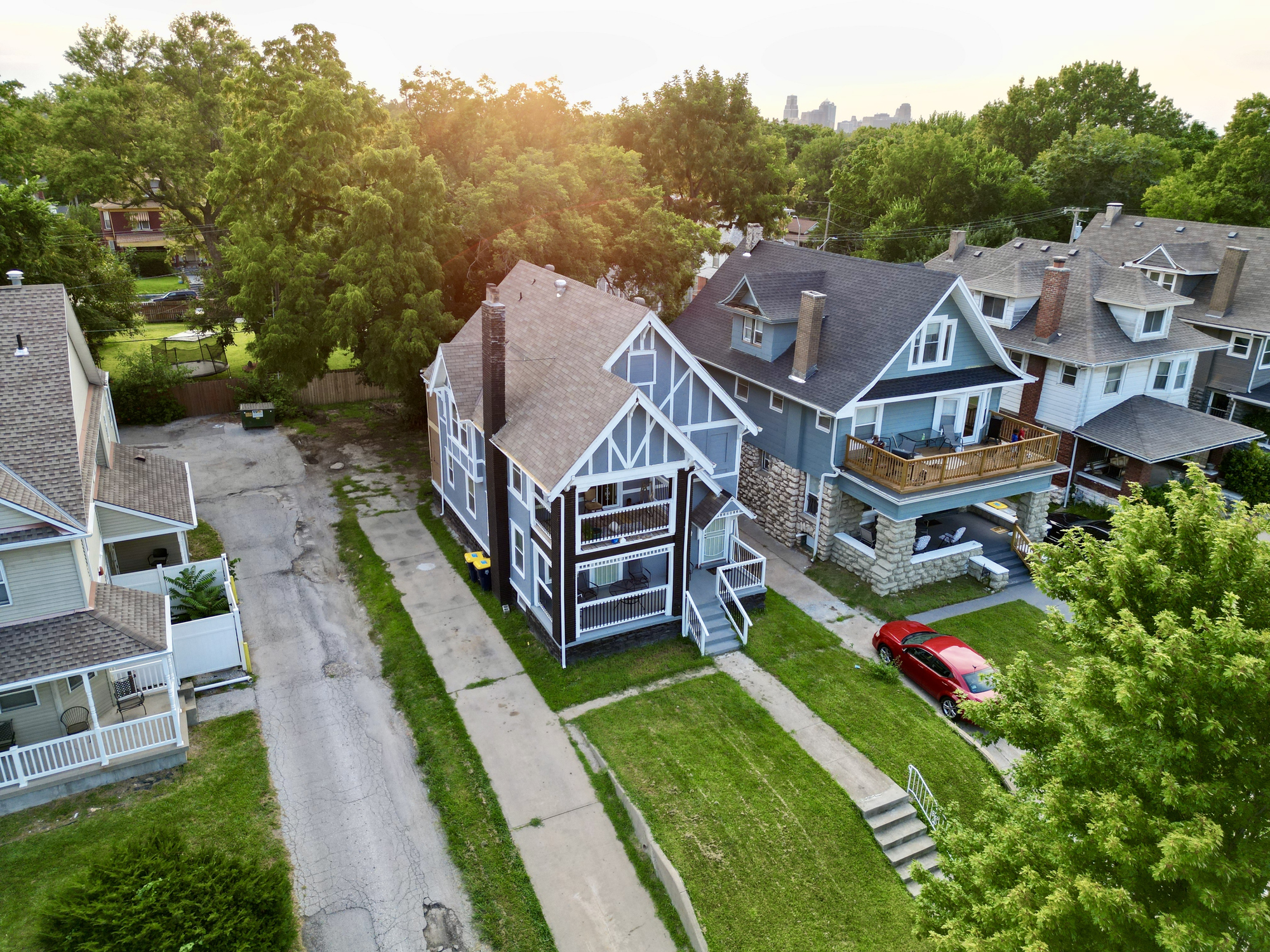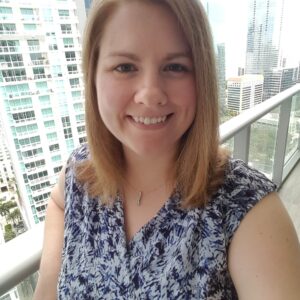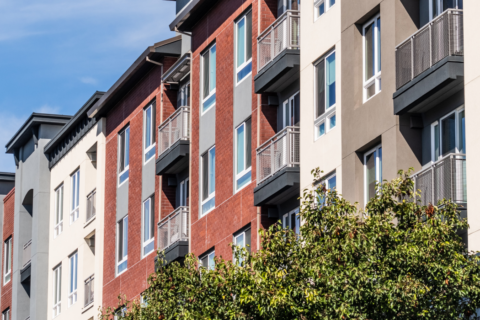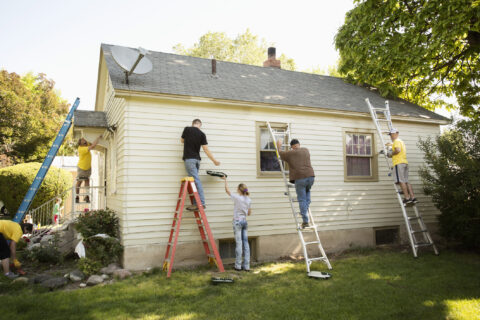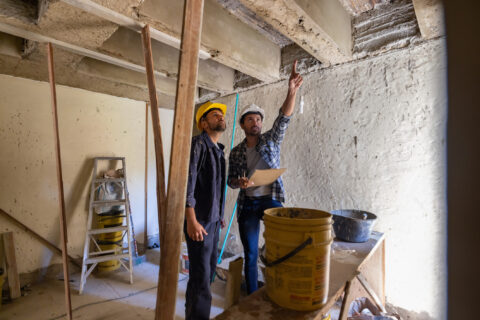The following story is adapted from the City of San Luis Obispo, CA team presentation at a recent NLC convening:
Meet “Josephine.” Retired and living on a fixed income, Josephine has significant respiratory issues. The manufactured housing unit she lives in was built in 1980, and her appliances — including her water heater and home heating unit — are showing some signs of age. At a service fair, Josephine learns that she qualifies for some home heating assistance and appliance upgrades. She reaches out to her local government and gets the help she needs.
This side of the story is what Josephine experiences. What she doesn’t see is the work and structures behind the scenes that make it all possible. The local team is using a new technology tool to analyze data to know that the service fair should be held in Josephine’s neighborhood. They work with community partners to organize and plan the fair, and to gather survey information from the residents. That information is cross-referenced with their local housing data in the new platform, helping the team understand what resources are needed where. Services can be tracked, ensuring accountability to the community.
This story illustrates the goal of the NLC Healthy Housing Innovation Cohort: to improve healthy housing service delivery for residents, utilizing cross-sector collaboration and information sharing through data and technology platforms and systems. Supported by NLC and a team of tech providers, eight municipal teams worked over 15 months to better meet a range of community needs related to improving health through addressing housing hazards.
In October 2025, an independent jury panel selected the top three teams for cash prizes in support of sustaining local momentum.
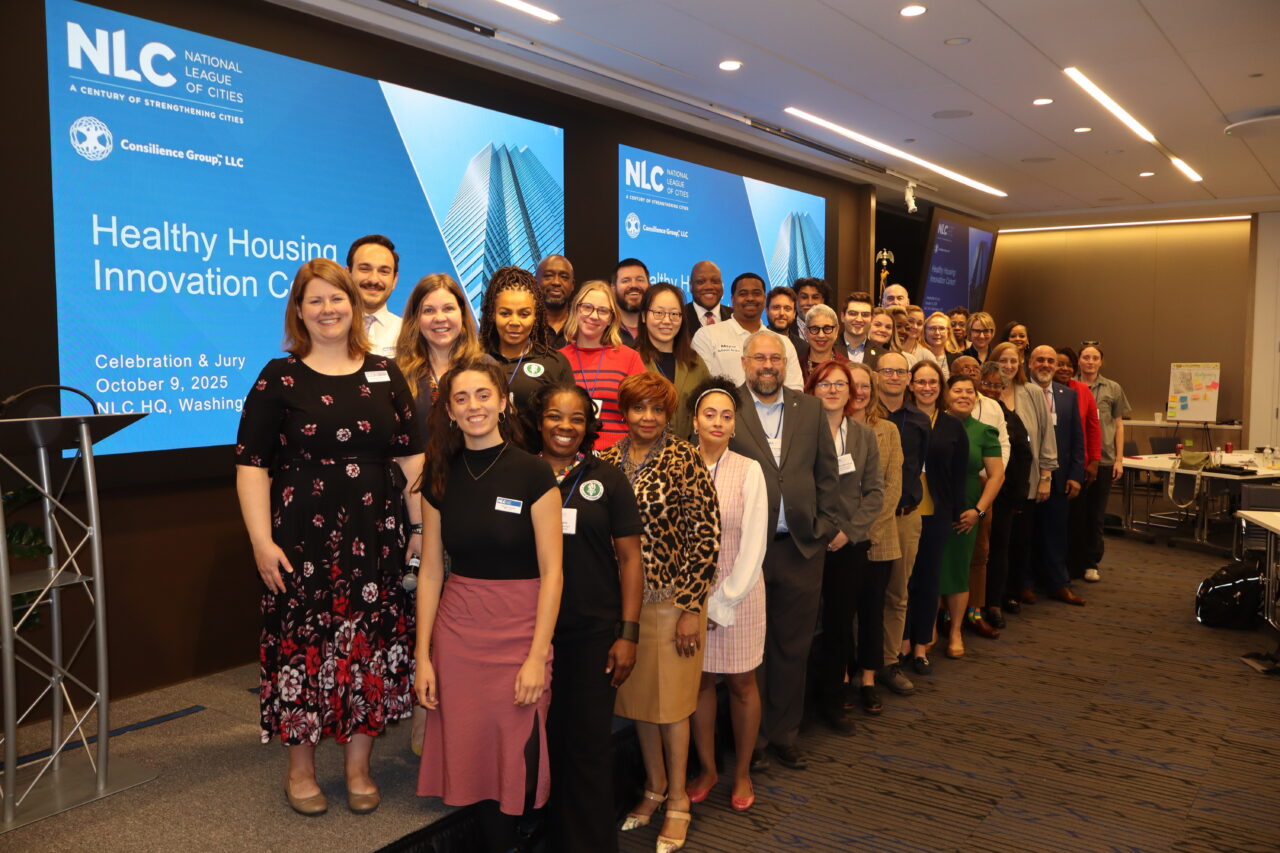
First Place, $50,000: Kansas City, MO
- Tech Provider: FindHelp
- Project Highlights: The City of Kansas City pulled together a team of staff from several departments, including Public Health, Housing and Community Development, IT, Council and community members and partners, to build a one-stop solution for residents to access housing rehabilitation services called the Home Resource Network: There’s No Wrong Turn. In collaboration with FindHelp, the team developed the first city-wide referral system, bringing the wide variety of services and resources available across the city into a single access resource, which will enhance the service delivery experience for both residents and staff. The goal is to simplify access, streamline referral making and tracking and improve housing and health outcomes.
Second Place, $20,000: San Luis Obispo, CA
- Tech Provider: Tolemi
- Project Highlights: The City of San Luis Obispo committed to improving health and housing resilience by developing a concierge service providing residents with a single point of contact for services. The team prioritized manufactured housing as the initial focus, with the intent of expanding to other housing types. San Luis Obispo partnered with Tolemi to gather data that hadn’t previously been available in a cohesive source. That data informed the team’s approach and use of resources. Key to the success of this project was the team’s commitment to engaging with the community, stakeholders and decision makers. Creative problem-solving was also needed, such as using photos and illustrations of the different housing communities as a source for populating geospatial elements of the database.
Third Place, $10,000: Maywood, IL
- Tech Provider: Tolemi
- Project Highlights: The Village of Maywood focused on increasing visibility and accountability, particularly for rental housing. The team grounded their work in the aims of Healthy People 2030, knowing that housing is a foundational aspect of health and wellbeing. The village collaborated with a wide range of community partners, funders and tech providers to provide a comprehensive response to improving decision-making and service delivery for residents. Through their work with Tolemi, the team was able to compile information from previously existing, but disparate, systems — providing a holistic view of housing quality and health concerns to improve responses to those needs and increase accountability.
Other cohort members included:
Baton Rouge, LA
- Tech Provider: DataKind DC
- Project Highlights: The Baton Rouge team collaborated to bring vital health and housing information together to make the case for improving health outcomes through addressing housing quality. They worked with DataKind DC to present and visualize the information in a way that tells a compelling story and informs decisions around strategy and funding, including updates to the Consolidated Plan.
Concord, NC
- Tech Provider: Thrivelink
- Project Highlights: Concord identified their local audience with the greatest opportunity for impact and carefully selected the best tool to meet those needs, gathering input and buy-in across community partners, and planning for future scaling from the beginning. The team is implementing a phone-based AI tool that streamlines the application process for services, with a special emphasis on helping senior citizens.
Harrisonburg, VA
- Tech Provider: Tolemi
- Project Highlights: The Harrisonburg team highlighted the importance of aligning data structures to be able to gain usable insights. They worked to gain buy-in across departments for sustainability and are engaging with community partners, such as educational institutions to gather local housing data to inform future strategy.
Lake City, SC
- Tech Provider: FindHelp
- Project Highlights: The City of Lake City was laser-focused on centralizing information about services and resources that are available, and on increasing access for all residents. With special consideration for seniors, this team is creating “digital access key cards” with a QR code and the website information for ease of reference — keeping the information right at hand.
Montgomery, AL
- Tech Provider: City Health Dashboard
- Project Highlights: The City of Montgomery worked with local partners and national partners to identify funding sources, gather community buy-in and learn more about local priorities. This team effectively communicates the need for healthy housing programs, sharing data and individual stories. Focusing on increasing access to healthy homes and community education, Montgomery is laying the foundation for local policy change and developing new programs.
Shared Themes and Keys to Success
Across unique local contexts and challenges, a common theme was that while bringing information together may seem like a simple idea, the implementation of that idea can pose challenges. Many teams also found that easing access and providing accountability enhances trust and community buy-in.
Another key to success was the recognition that technology is only part of the solution; it is incredibly valuable and important to work collaboratively across departments and sectors, and to engage with the community in a design process that is human-centered. The teams also benefited from bringing intentionality to this process and valued the space the cohort model created for the work to get done. Plans shifted over time to meet changing local needs and contexts; improving health outcomes and improving service delivery to better meet resident needs can be a long, but worthwhile, endeavor.
Explore the Healthy Housing Policy Hub
Everyone deserves a safe, stable, affordable and healthy place to call home, and NLC’s hub of healthy housing policies can help you make that a reality. Explore policies from around the country spanning rental registries, home inspections, health hazards and more.
